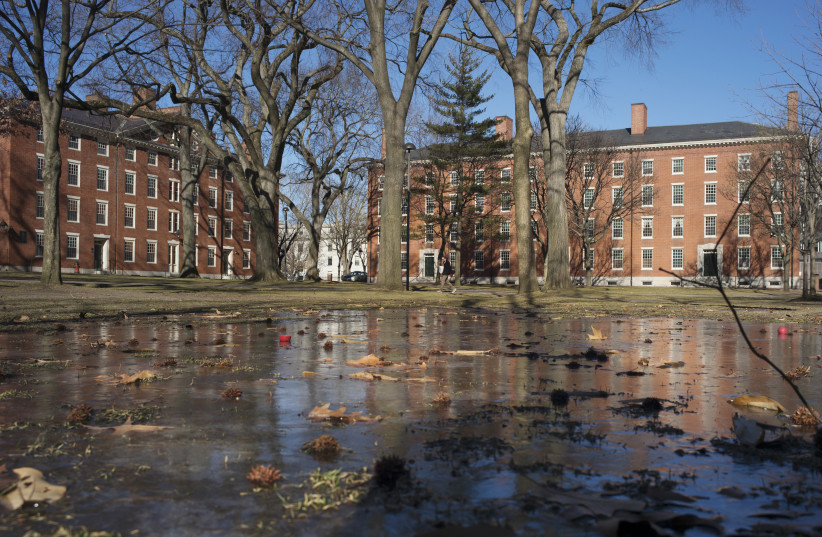Harvard College announced on December 14 that 7921 applicants had applied to participate in the Class of 2028 under the Early Action Program. The previous year of 2022 saw 9,553 applicants, which constitutes a drop of 17%.
Of the 7,921 applicants this year, 692 were selected which is only marginally less than the 722 students accepted in 2022.
The drop in applications comes as Harvard increased their financial support for students whose household income falls below $85,000. The grant offers students $2,000 in the fall of their junior year to help with the costs associated with preparing for post-Harvard life, Harvard claims.
“Our terrific financial aid program, especially with the new launch grant, can provide even more support to students who need it most. Financial support combined with resources like those provided through the Mignone Center for Career Success make it possible for all students to follow their goals during and after Harvard,” said Jake Kaufmann, Griffin Director of Financial Aid.
“It’s exciting to see that so many of the nation’s and the world’s most promising students have been admitted early to the Class of 2028. Their extraordinary range of talent and many contributions to their communities will add immeasurably to Harvard over the next four years and beyond,” said Admissions and Financial Aid Dean William R. Fitzsimmons.

“We continue to attract applications from a diverse range of secondary schools and communities around the world. Students have responded well to this year’s essay questions, using them to share their passions and hopes for the future. We look forward to seeing what these students contribute to the community once they are here,” said Director of Admissions Joy St. John.
Antisemitism scandal plagues Harvard
Harvard has made headlines recently after the president of the institution Claudine Gay failed to take a strong stance against the calls for genocide of Jews on campus in a congressional hearing in December.
“That type of hateful, reckless, offensive speech is personally abhorrent to me,” Gay said. But when asked whether Harvard would discipline students calling for an intifada, she responded more generally, “When speech crosses into conduct that violates our policies, including policies against bullying, harassment or intimidation, we take action and we have robust disciplinary processes that allow us to hold individuals accountable.”
Gay was also heavily critiqued for taking days to condemn Hamas’s October 7 terrorist attack against Israel.
Rabbi David Wolpe, a visiting scholar at Harvard, resigned from the antisemitism advisory committee at Harvard University shortly following the hearing.
“Without rehashing all of the obvious reasons that have been endlessly adumbrated online, and with great respect for the members of the committee, the short explanation is that both events on campus and the painfully inadequate testimony reinforced the idea that I cannot make the sort of difference I had hoped,” wrote Wolpe.
“The system at Harvard along with the ideology that grips far too many of the students and faculty, the ideology that works only along axes of oppression and places Jews as oppressors and therefore intrinsically evil, is itself evil. Ignoring Jewish suffering is evil. Belittling or denying the Jewish experience, including unspeakable atrocities, is a vast and continuing catastrophe. Denying Israel the right to self-determination as a Jewish nation accorded unthinkingly to others is endemic, and evil.”
In addition to the ongoing antisemitism scandal, Gay has now been accused of plagiarism in her 1997 Ph.D. dissertation and three other published works, according to multiple media reports including The Harvard Crimson.
The governing body of Harvard, the Harvard Corporation, confirmed they had been made aware of the allegations in late October, predating the congressional hearing into the college’s response to antisemitism on campus.
“While the analysis found no violation of Harvard’s standards for research misconduct, President Gay is proactively requesting four corrections in two articles to insert citations and quotation marks that were omitted from the original publications,” the Corporation statement said.
The New York Post reportedly reached out to Harvard on Oct. 24 “asking for comment on more than two dozen instances in which Gay’s words appeared to closely parallel words, phrases or sentences in published works by other academics.” The Post later received a 15-page document from a lawyer who identified himself as a defamation counsel for Harvard and Gay.
Andrew Lapin/JTA and Jerusalem Post Staff contributed to this report.
